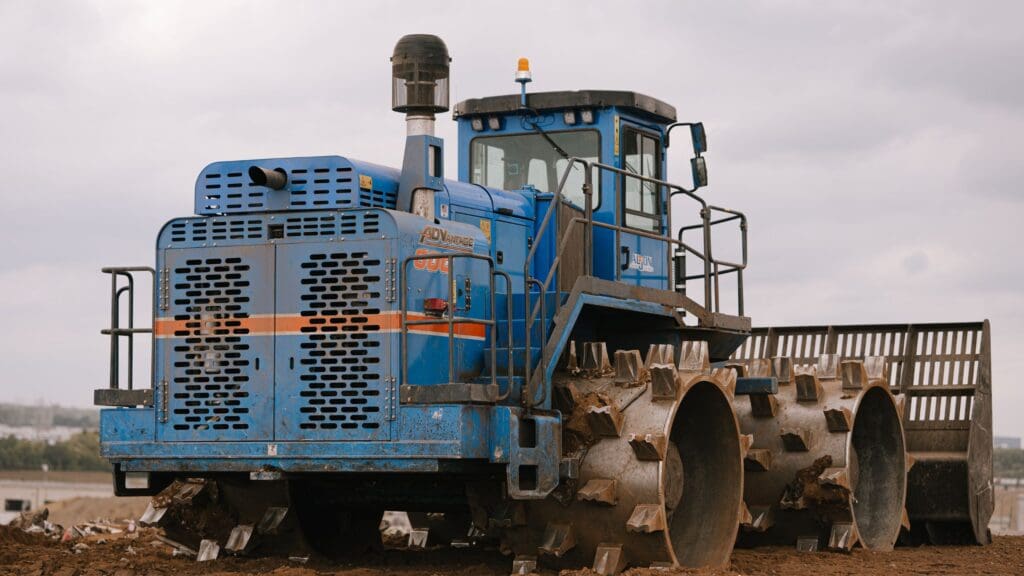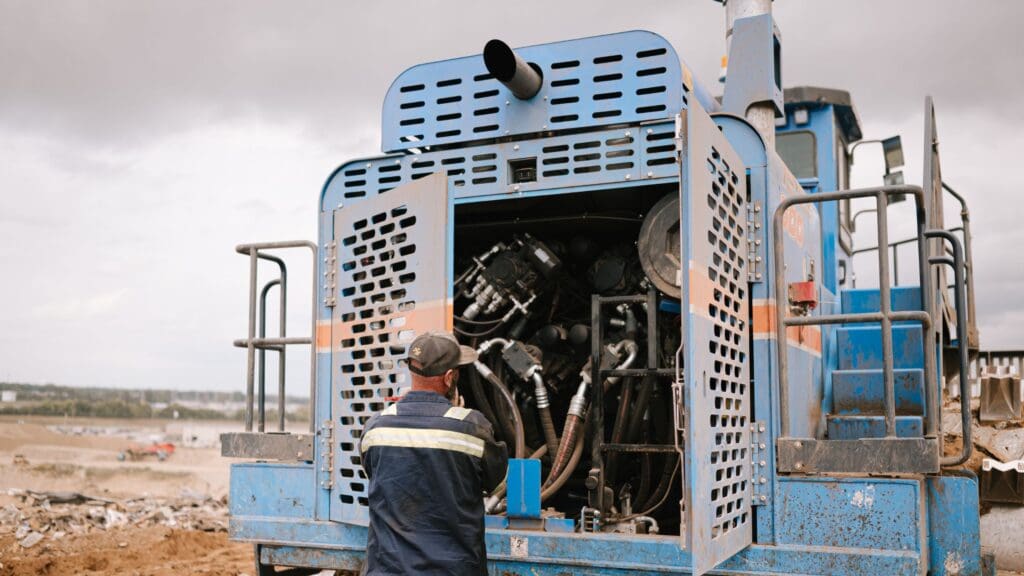Maintaining heavy equipment like scrap loggers and balers is critical to ensuring smooth operations in scrap yards and recycling facilities. When parts need replacing, you’re faced with a choice: order directly from the original equipment manufacturer (OEM) or opt for generic, aftermarket parts. While the latter may seem like a cost-saving shortcut, there are significant factors to consider when it comes to the relative quality, reliability, and long-term performance of aftermarket parts compared to OEM parts.
Using OEM parts is widely regarded as the prudent option for keeping your equipment running optimally, minimizing downtime, and reducing overall operational costs. Here is why ordering parts directly from the manufacturer is essential for maintaining the performance and longevity of your scrap equipment.
1. Quality
One of the most compelling reasons to choose OEM parts is quality. When you buy parts directly from the manufacturer of your scrap equipment, you are assured that these parts meet the exact specifications of your machine. OEM parts are crafted to the same technical standards as the components originally installed on your equipment.
- Precision Fit: Since OEM parts are made with the original design specifications in mind, they will fit perfectly. You won’t have to worry about modifications or adjustments during installation, which reduces the risk of future complications.
- Compliance with Standards: OEM parts are built according to the manufacturer’s strict production standards, ensuring they perform as expected under the demanding conditions that scrap equipment faces daily.
The same cannot be said for aftermarket parts, which are often designed to fit a range of equipment models and may not adhere to the same high standards of production. Additionally, the manufacturer of aftermarket parts won’t have the same level of investment in the brand, that the original equipment manufacturer may have spent years or decades building.
2. Compatibility
In the world of heavy machinery, compatibility is key. Using parts that are specifically designed for your equipment means seamless operation, minimal downtime, and fewer headaches during installation.
Benefits of OEM Parts:
- Flawless Integration: Since OEM parts are designed for your machine, they are installed with confidence, and customers know they will operate smoothly without causing issues. Your machine will function just as it did before, maintaining optimal performance.
- Avoiding Modifications: Generic parts, on the other hand, often require adjustments to fit correctly, which can lead to unanticipated problems down the road. These modifications may also void warranties or disrupt other machine components.
Using OEM parts eliminates compatibility concerns and ensures that your equipment will continue to operate safely and efficiently. The risk of incompatibility is especially problematic in scrap equipment, where even small modifications can lead to larger system issues.
3. Reliability
When it comes to scrap equipment, reliability is non-negotiable. Your machinery is subject to tough environments, heavy loads, and constant wear. Inferior parts can lead to costly breakdowns and unplanned downtime, which in turn affects your bottom line.
OEM vs. Aftermarket Reliability:
- Durability of Materials: Aftermarket parts may seem reliable at first, but they often fail to meet the manufacturer’s requirements in terms of materials and design. Their specifications are frequently altered for the purposes of cost-cutting, which can result in weaker components.
- Long-Term Reliability: Even the smallest engineering deviations (e.g., part thickness, quality of material) can cause catastrophic failures over time. OEM parts are designed to wear more slowly, providing a higher level of dependability and protecting your equipment from unexpected breakdowns.
By investing in OEM parts, you safeguard the longevity and reliability of your entire system. Over time, this results in fewer breakdowns and a reduced need for repairs.
4. Performance
The performance of your scrap equipment depends not just on the machine as a whole, but on the quality of each individual component as well. Choosing OEM parts ensures that your equipment continues to perform at peak levels.
Why OEM Parts Protect Performance:
- Maintaining Operational Integrity: With OEM parts, each replacement part is guaranteed to meet the high standards set by the manufacturer, who has a reputation to consider in the long term. This means that the machine will continue to operate with the same level of efficiency and safety as before.
- Avoiding Damage: Installing low-quality, generic parts can lead to damage not only to the part itself but to other critical components. Over time, this can cause significant performance issues and may even shorten the life of your equipment.
To ensure that your scrap logger or baler maintains its operational integrity, OEM parts are the safest choice. By using manufacturer-approved components, you minimize the risk of costly damage and system failures that could compromise the safety and efficiency of your scrap equipment and your business’s operation.
5. Long-Term Cost Savings
On the surface, aftermarket parts may seem like a way to save money, but in reality, they often result in greater costs over time. As mentioned earlier, generic parts are typically designed to meet a broader range of applications, so they may not fit or function as well as OEM parts.
How OEM Parts Save You Money in the Long Run:
- Reduced Wear on Other Parts: Poorly fitting or subpar components can cause excessive wear and tear on other parts of the machine. OEM parts, on the other hand, are designed to integrate seamlessly, reducing the likelihood of additional damage and minimizing repair costs.
- Less Frequent Repairs: By investing in high-quality, manufacturer-approved parts, you’ll face fewer repair costs over time. OEM parts last longer, meaning you won’t have to replace them as often.
- Extended Equipment Lifespan: Regularly using OEM parts can significantly extend the life of your scrap equipment. When your machine is operating at its peak, there’s less need to replace the entire unit prematurely, leading to substantial cost savings over time.
In the long term, OEM parts provide the best value. While they may have a higher upfront cost, their reliability, performance, and compatibility ensure that you avoid expensive repairs and downtime, leading to a lower total cost of ownership.
When you’re maintaining heavy-duty scrap equipment like loggers and balers on an ongoing basis, there’s little room for compromise. Upon careful analysis, it becomes clear that ordering parts directly from the manufacturer ensures that your machinery will continue to operate at peak performance with minimal disruptions. OEM parts provide superior quality, reliability, and compatibility, protecting your equipment from unforeseen issues and reducing long-term costs.
Manufacturer-approved components are the most cost-effective and prudent choice for any operation that relies on scrap equipment to keep things running smoothly. To learn more about specific OEM parts for your scrap equipment or to place an order, contact us today!



